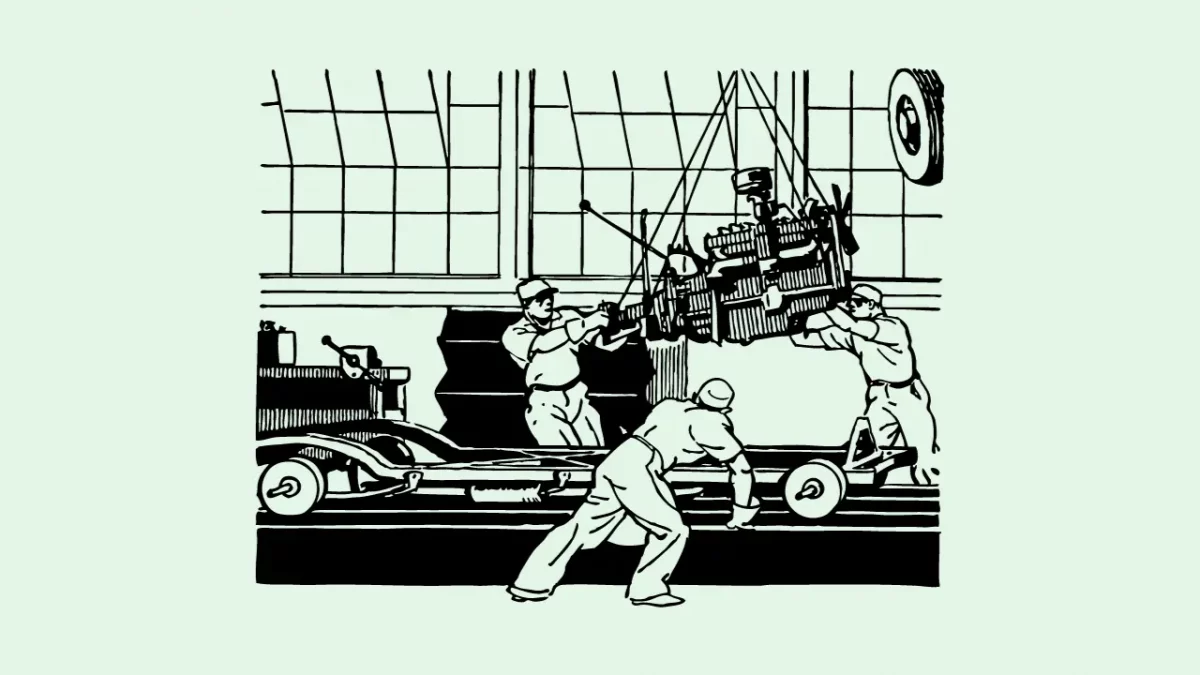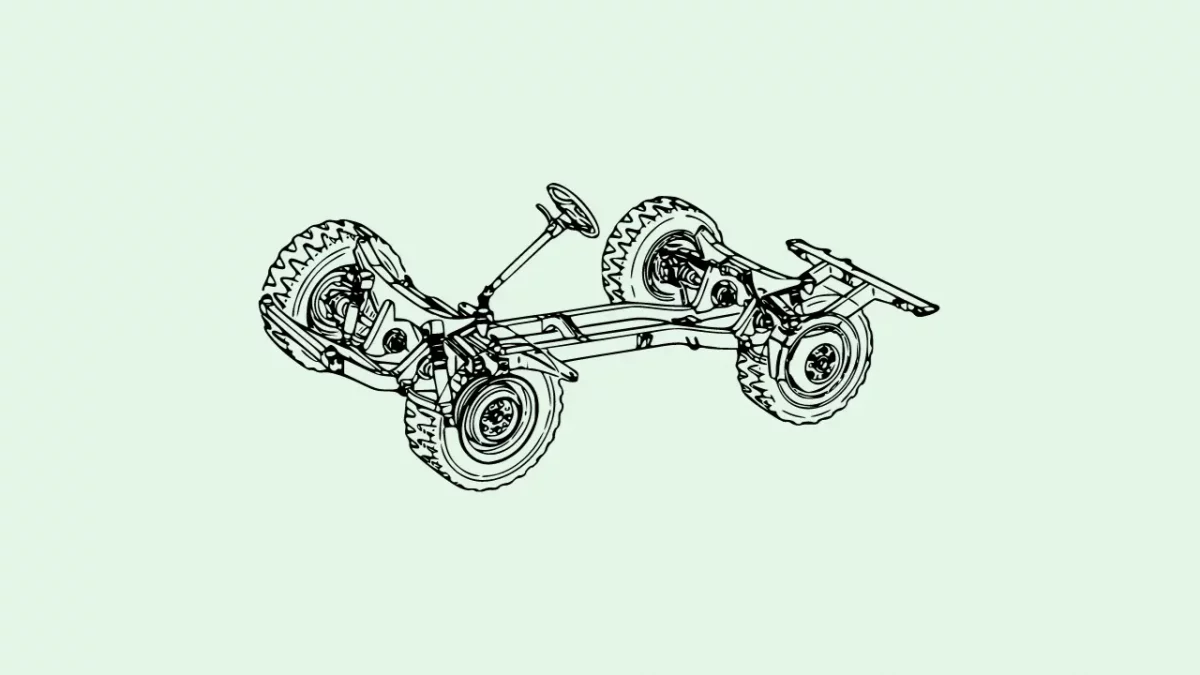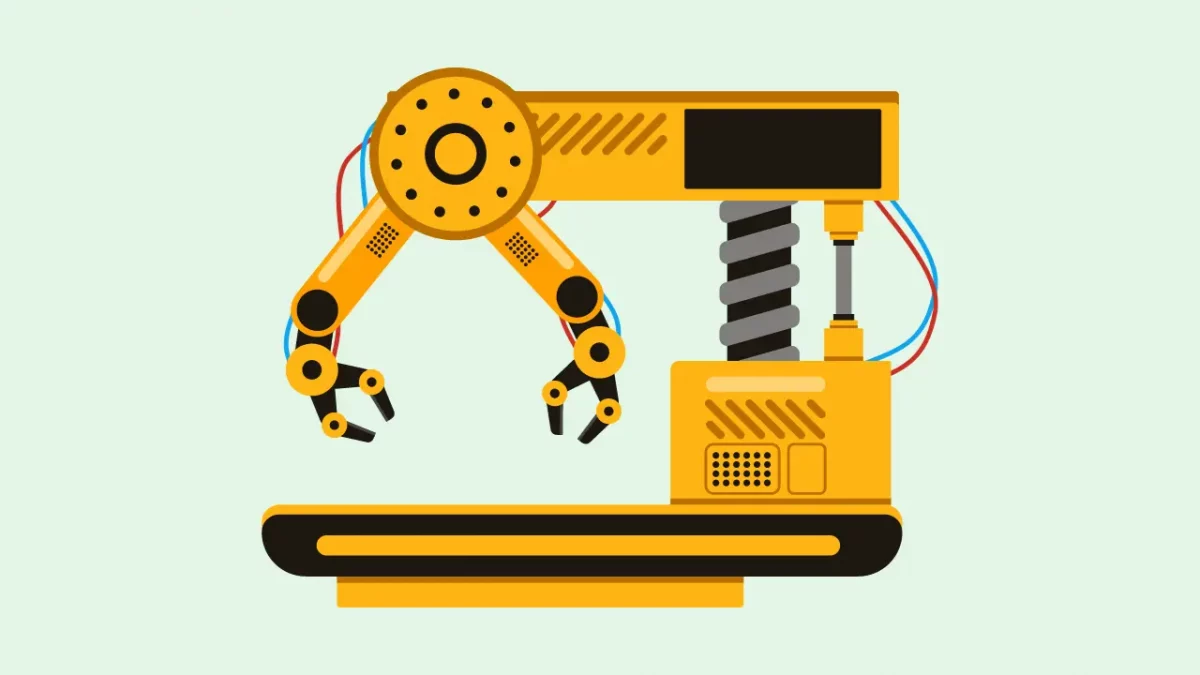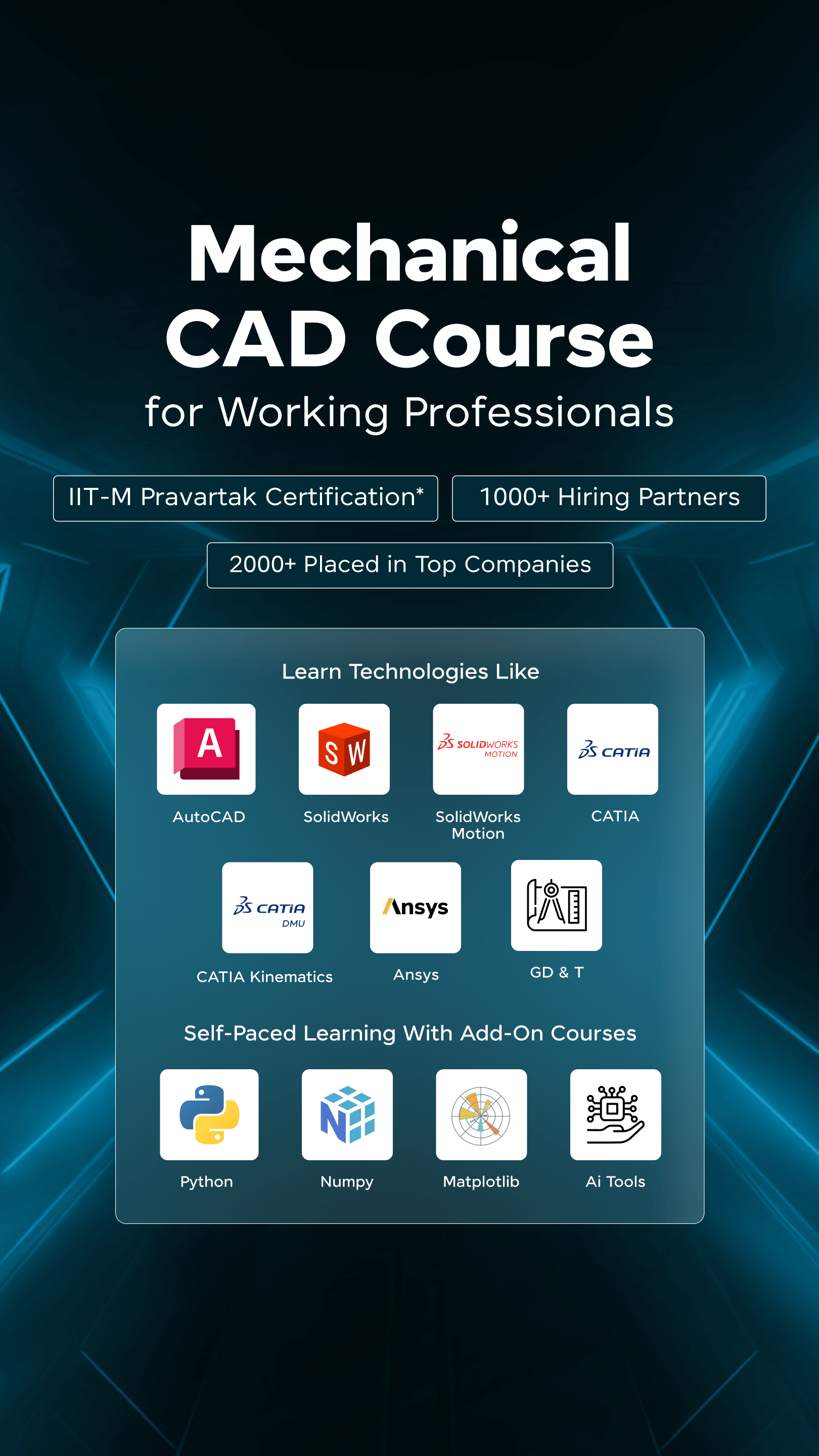
Top 7 Career Opportunities for Mechanical Engineers
Oct 04, 2024 4 Min Read 2537 Views
(Last Updated)
Have you ever felt confused when you decided to set up your career path as a Mechanical engineer? This happens to almost everyone out there because you know what Mechanical engineering is and its roles and responsibilities, but do you know the available career opportunities for Mechanical Engineers?
Many think that if you learn mechanical engineering, you won’t have many career opportunities, and because of this presumption, people give up even before they start. To break this myth and to show you the numerous career opportunities for mechanical engineers, we formulated this article which contains the list of career opportunities for data mechanical engineers.
Table of contents
- Top Career Opportunities for Mechanical Engineers
- Design Engineer
- Manufacturing Engineer
- Automotive Engineer
- Energy Engineer
- Robotics Engineer
- Aerospace Engineer
- Biomedical Engineer
- Conclusion
- FAQ
- What career paths can I pursue with a degree in mechanical engineering?
- Are there global opportunities for mechanical engineers?
- What industries can mechanical engineers work in?
- How do mechanical engineers contribute to technological advancements?
Top Career Opportunities for Mechanical Engineers

There is a wide array of career opportunities after Mechanical Engineering for mechanical engineers across various industries due to their versatile nature and foundational skills. You can also enroll yourself in online courses after pursuing Mechanical engineering to stand out of the crowd. Here is a list of 7 career opportunities for mechanical engineers:
1. Design Engineer
Design engineers are responsible for creating and developing new products, systems, or components. One has to use CAD (Computer-Aided Design) software to generate detailed models and drawings of their designs.
Design engineers collaborate with cross-functional teams to ensure that the final product meets performance, safety, and functionality requirements. You should consider factors like materials, manufacturing processes, and cost-effectiveness during the design phase.
It plays a crucial role in the innovation and development of products across industries. Before indulging in this, you need a strong understanding of materials, manufacturing processes, and engineering principles to ensure that their designs are not only functional but also feasible to manufacture and cost-effective.
Responsibilities:
- Conceptualizing and sketching product ideas.
- Creating 3D models and technical drawings using CAD software.
- Analyzing design feasibility and performance through simulations.
- Collaborating with teams to incorporate feedback and refine designs.
- Ensuring designs comply with industry standards and regulations.
Before we move on to the next part, you should have a deeper knowledge of key mechanical engineering concepts. You can consider enrolling yourself in GUVI’s CAD Program for Mechanical Engineers, which lets you gain practical experience by developing real-world projects and covers technologies including AutoCAD, Solidworks, CATIA, Ansys, GD & T, etc.
Additionally, if you would like to explore AutoCAD for Mechanical Engineering through a self-paced course, you can take GUVI’s AutoCAD Mechanical Certification Course.
2. Manufacturing Engineer

Manufacturing engineers focus on optimizing production processes to ensure efficient and cost-effective manufacturing of products.
You have to work in order to improve production methods, reduce waste, and enhance product quality. Manufacturing engineers collaborate closely with design engineers to ensure that products are manufacturable and meet production requirements.
You also work closely with quality control teams to monitor and improve production line performance. Problem-solving skills and a deep understanding of production techniques are essential in this role.
Responsibilities:
- Designing and implementing production processes.
- Developing and improving assembly and manufacturing methods.
- Identifying areas for process improvement and automation.
- Collaborating with suppliers to source materials and components.
- Ensuring quality control and addressing production issues.
3. Automotive Engineer

Automotive engineers design and develop vehicles and their components, including engines, transmissions, chassis, and electronics. You will be focusing on enhancing vehicle performance, safety, fuel efficiency, and user experience.
Automotive engineers work on aspects ranging from aerodynamics and structural integrity to incorporating advanced technologies like electric and autonomous systems.
You will collaborate with teams of engineers from different disciplines, such as electrical engineering and materials science, to create well-rounded vehicles. You also have to consider factors like aerodynamics, ergonomics, and regulatory compliance to produce safe and high-quality vehicles.
Responsibilities:
- Designing and testing vehicle components for performance and safety.
- Conducting simulations and analysis for vehicle systems.
- Collaborating with cross-functional teams including electrical engineers.
- Incorporating sustainability practices and developing eco-friendly vehicles.
- Ensuring compliance with industry standards and regulations.
4. Energy Engineer
Energy engineers work on designing and implementing energy-efficient systems and solutions. You contribute to renewable energy projects, energy management, and sustainability initiatives. Energy engineers work in various industries, such as power generation, HVAC systems, and renewable energy technologies.
Energy engineers need a strong background in thermodynamics, fluid dynamics, and heat transfer. You also have to stay up-to-date with advancements in renewable energy technologies and regulations to develop solutions that contribute to a more sustainable future.
Responsibilities:
- Designing energy-efficient systems for buildings and industries.
- Developing and implementing renewable energy projects.
- Analyzing energy consumption patterns and suggesting improvements.
- Conducting energy audits and recommending energy-saving measures.
- Integrating smart technologies for energy optimization.
5. Robotics Engineer

Robotics engineers design and develop robotic systems for different applications. Your work lies in creating robots that can perform tasks autonomously or with human interaction.
You as a Robotics engineer will have to collaborate with software developers, electronics engineers, and mechanical designers to create functional and reliable robotic systems.
You need to have a solid foundation in mechanics, electronics, and programming languages required for robotics to ace this field. You often work on multidisciplinary teams and need to understand how different components come together to create functional and intelligent robotic systems.
Responsibilities:
- Designing robotic mechanisms and structures.
- Developing algorithms for robot control and navigation.
- Programming and testing robot behaviors and interactions.
- Integrating sensors and actuators for sensing and movement.
- Collaborating on projects involving automation, manufacturing, and AI.
6. Aerospace Engineer

Aerospace engineers specialize in designing and testing aircraft, spacecraft, and related systems. You work on propulsion systems, aerodynamics, materials, and control systems. You as an Aerospace engineer will be contributing to space exploration, aviation, and defense industries.
Responsibilities:
- Designing aircraft and spacecraft components for performance and safety.
- Analyzing aerodynamics and fluid dynamics for optimal flight.
- Developing propulsion systems, such as engines and thrusters.
- Conducting structural analysis and ensuring structural integrity.
- Participating in research for advanced aerospace technologies.
7. Biomedical Engineer
Biomedical engineers apply mechanical engineering principles to design medical devices, equipment, and technologies for healthcare and medical research. You have to work on projects that improve patient care, diagnostics, and treatment methods
Biomedical engineers collaborate with medical professionals to ensure that their designs are safe, effective, and compliant with regulatory standards. You also contribute to improving healthcare outcomes by developing innovative solutions that address medical challenges.
Responsibilities:
- Designing and developing medical devices such as prosthetics and implants.
- Collaborating with medical professionals to understand requirements.
- Conducting tests and simulations to ensure device safety and efficacy.
- Integrating electronics and sensors into medical equipment.
- Staying updated on medical regulations and compliance.
These seven career opportunities showcase the diversity and impact of mechanical engineering across various industries. Each role requires a unique set of skills and expertise, making mechanical engineering a versatile and exciting field to pursue.
Kickstart your career by enrolling in GUVI’s CAD Career Program for Mechanical Engineers where you will master technologies including AutoCAD, Solidworks, CATIA, Ansys, GD & T, etc, and build interesting real-life mechanical projects.
Alternatively, if you would like to explore AutoCAD for Mechanical Engineering through a self-paced course, you can take GUVI’s AutoCAD Mechanical Certification Course.
Conclusion
In conclusion, the world of mechanical engineering consists of boundless possibilities, offering a rich variety of career opportunities for mechanical engineers.
From the intricate designs that bring imagination to life, to the efficient processes that power industries, mechanical engineers are the architects of progress. As we navigate an era of technological evolution, the significance of mechanical engineering remains steady, and the career opportunities for mechanical engineers are growing strong as they shape the present and the future which is both sustainable and dynamic.
FAQ
What career paths can I pursue with a degree in mechanical engineering?
With a degree in mechanical engineering, you can explore careers such as design engineer, manufacturing engineer, energy engineer, robotics engineer, automotive engineer, and more.
Are there global opportunities for mechanical engineers?
Yes, mechanical engineering skills are in demand worldwide, offering opportunities in various countries and industries.
What industries can mechanical engineers work in?
Mechanical engineers can work in industries such as automotive, aerospace, energy, manufacturing, biomedical, robotics, HVAC, and more.
How do mechanical engineers contribute to technological advancements?
Mechanical engineers drive innovation by developing new products, technologies, and systems that improve efficiency, safety, and overall quality of life.
































Did you enjoy this article?